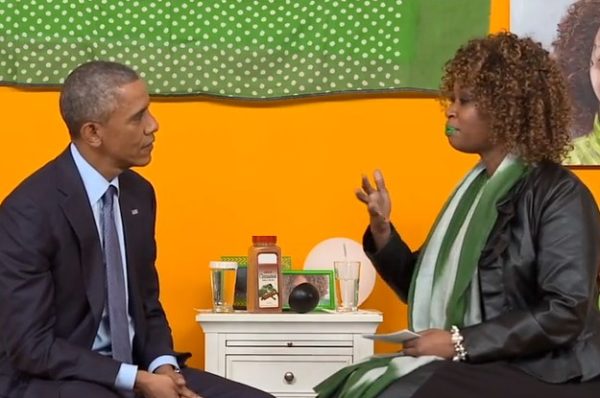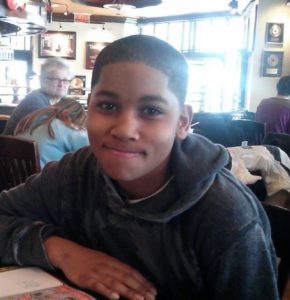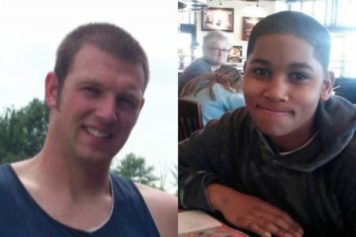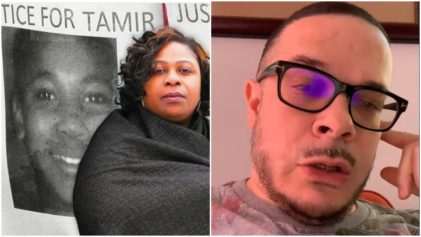
The law made it a requirement for police departments to keep track of the race of people officers were pulling over.
The president hoped that the legislation would force many officers to think twice about stopping Black citizens without probable cause.
“Suddenly, each cop when they were about to make a traffic stop, they had to think, ‘Okay, am I stopping this person because I should be stopping them, or is some bias at work?’ “ Obama said during the YouTube interview. “Just that kind of mindfulness about it ended up resulting in better data, better policing, more trust by the communities that are affected.”
The claim is certainly a big one to make—that a piece of legislation helped reduce the amount of times Black citizens were profiled by officers.
It’s also a claim that doesn’t seem to be supported by the numbers.
Some of the latest data from the state’s largest city, Chicago, suggests that racial profiling is still plaguing the Black community.
While Black people made up roughly 30 percent of Chicago’s population in 2013, they made up well over 40 percent of the population that was stopped by police officers.
They were also the only racial group, when compared to white people and Hispanics, that had a percentage of stops higher than their percent of the population.
So while the new law did help give accurate numbers to represent the racist attitudes officers tend to have towards Black citizens, it didn’t do much to actually stop them from acting on those racial biases.
It is clear that there isn’t as much truth to the president’s statement as he would like there to be, but it also brings up a much more important conversation.
Is there really any policy that can put an end to racist policing? Can any legislator do anything to mend the relationship between the Black community and law enforcement? What good are laws anyway for a group of people with uniforms and badges that essentially give them the right to live above the law?
Many Black citizens would like to believe that the solution to racism and police brutality against Black citizens is as simple as getting the right signature on the right piece of paper, but time and time again the country has seen that the root of the problem goes much deeper than laws and regulations.
One issue that the president himself even acknowledged were the many studies that prove Black youth are perceived as being more dangerous and much older than they really are.
The nation witnessed this occurrence when Cleveland officer Timothy Loehmann fatally shot 12-year-old Tamir Rice for allegedly reaching for a toy gun. When the officers called in the shooting, they reported that the suspect was out 20 years old.
All across the nation, Black men are fatally shot by officers at higher rates than their white counterparts even when they are not attacking anyone.
A 2012 supplementary homicide report by the FBI revealed that while Black people only accounted for 13 percent of the nation’s population, they accounted for nearly 40 percent of suspects who were killed by police during arrests and were not attacking when killed.
Even in instances where suspects did allegedly attack police officers, the officer’s decision to shoot came much quicker than it did for white suspects.
For example, the entire encounter that unarmed Ferguson teen Michael Brown had with officer Darren Wilson lasted roughly two minutes.
Viral videos and shocking police reports have since revealed countless instances of white suspects pulling guns out on officers or brutally attacking officers without being killed.
Some of these encounters lasted well over two minutes and still didn’t result in the officers firing at the white suspects.
Even in police simulations, studies revealed that officers fired at Black suspects far more quickly and more often than they did with white suspects.
It’s evidence of the racist perception of Black people that is causing them to become targets to police officers.
When perception is the issue, it seems highly unlikely that any policy change will emerge as an efficient solution.
What the Black community can hope for, however, is that the proper policy changes will at least bring about police accountability.
Police body cameras will not be effective on their own, as the nation saw with the death of Staten Island father Eric Garner, which was caught on video; but when combined with other policy changes, like mandatory independent special prosecutors in cases dealing with police shootings, the nation could reduce the amount of officers who kill unarmed Black citizens and are punished with nothing more severe than a few days of administrative leave.



